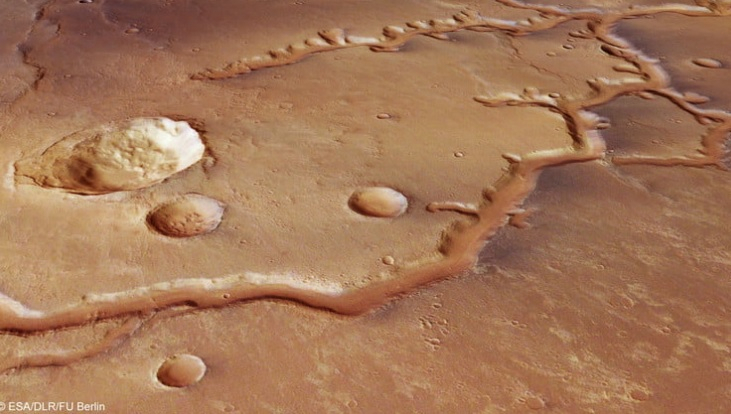Microbial life could have inhabited the surface water on early Mars, says a new study, which also learned that the planet's water was salty and rich in minerals.
The primary characteristics of natural waters are redox state, the measure of the abundance of gases such as oxygen and hydrogen; pH, the measure of the acidity of water; and salinity, the level of salt present in the water.
Reconstructed chemistry of water found on Mars
For the study, Yasuhito Sekine from the Tokyo Institute of Technology in Japan and other members of the research team reconstructed water chemistry at Gale Crater on Mars. NASA's Curiosity has analysed the phase and chemical composition of fluvial-lacustrine sediments deposited in long-lived lakes within Gale Crater.

For the research, two drill core samples of lacustrine sediments were obtained from Yellowknife Bay Formation which was probably deposited by flow deceleration as water streams encountered a lake in Gale Crater.
The properties of pore water within sediments apparently deposited in lakes in Gale Crater suggest these sediments formed in the presence of liquid water which was of a pH close to that of Earth's modern oceans, said the study published in the journal Nature Communications.
Earth's oceans are of course host to myriad forms of life, thus it seems compelling that Mars' early surface environment was a place contemporary Earth life could have lived. Presently, Earth is the only known location where life exists in the Universe. But scientists are examining various sites where life could have probably existed.
Studying Mars to understand the possible existence of life
Mars is at the top of this list for two reasons. First, it is relatively close to Earth compared to the moons of Saturn and Jupiter (which are also considered good candidates for discovering life beyond Earth in the solar system and are targeted for exploration in the coming decade).
Second, Mars is extremely observable because it lacks a thick atmosphere like Venus, and so far, there is pretty good evidence that Mars' surface temperature and pressure hovers around the point liquid water--considered essential for life--can exist.
Further, there is good evidence in the form of observable river deltas, and more recent measurements made on Mars' surface suggest that liquid water did in fact flow on Mars billions of years ago. Scientists are becoming increasingly convinced that billions of years ago Mars was habitable.
(With inputs from agencies)








